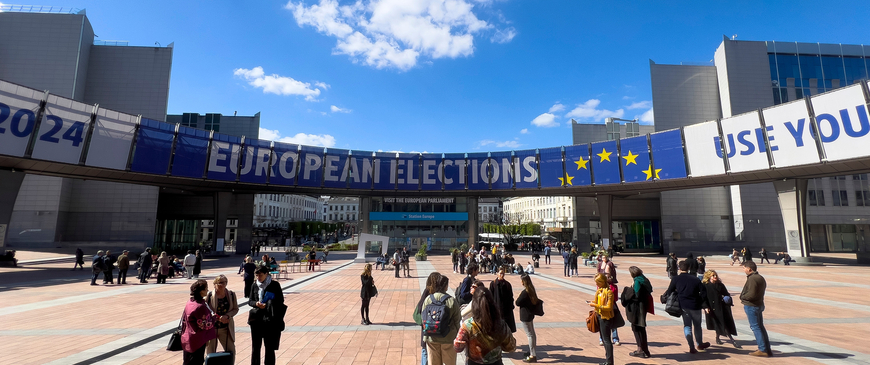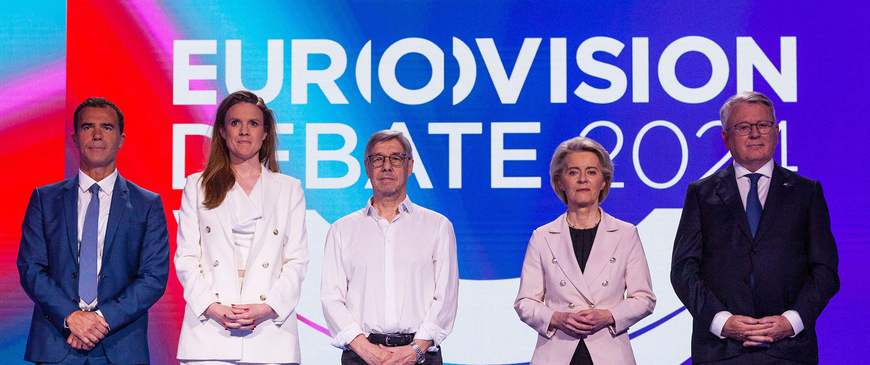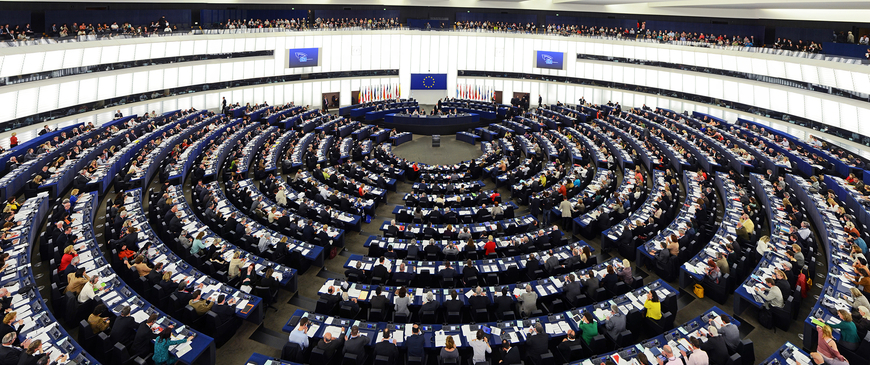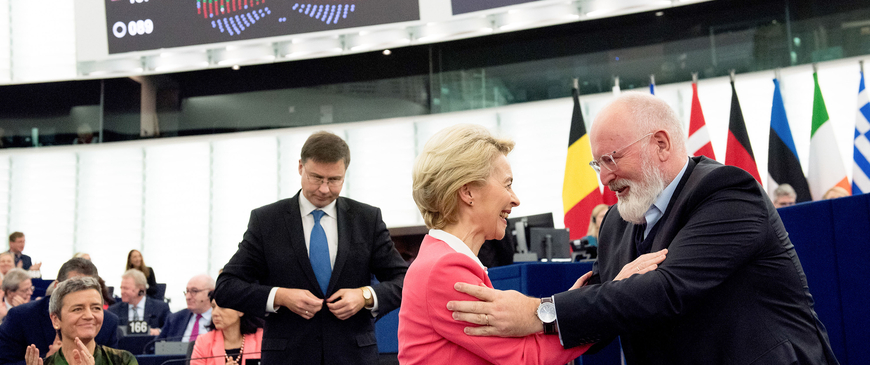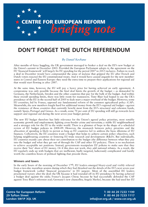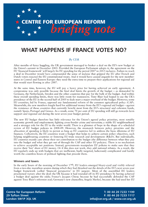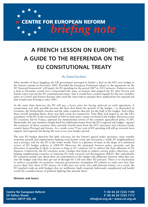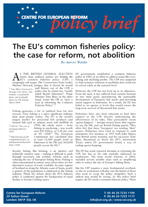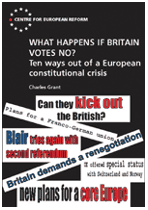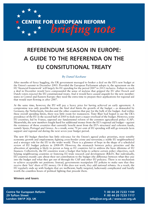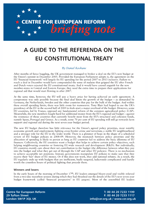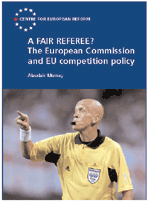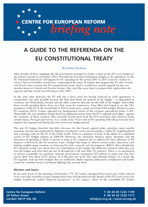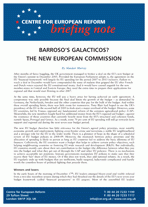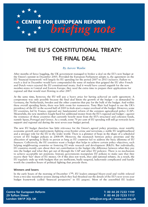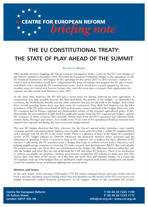EU institutions & treaties
Don't forget the Dutch referendum
02 May 2005
Three days after the French vote on the EU constitutional treaty on 29 May 2005 the Netherlands will hold its referendum. Current opinion polls predict that the Dutch will reject the treaty.
What happens if France votes No?
02 May 2005
In just over two weeks France will hold a referendum on the EU constitutional treaty. The outcome of the 29 May 2005 referendum remains on a knife-edge with the latest polls suggesting the country is split down the middle.
A French lesson for Europe? A guide to the referenda on the EU constitutional treaty
01 April 2005
On 29 May 2005 France will hold the second of ten national referenda on the EU constitutional treaty. The 25 EU governments have until November 2006 to ratify the treaty.
The EU's common fisheries policy: The case for reform, not abolition
01 April 2005
During the British general election campaign, political parties have found the EU's common fisheries policy (CFP) a temptingly soft target.
Making multilateralism work
01 February 2005
At their December 2003 summit, EU leaders nailed the concept of 'effective multilateralism' to their foreign policy mast. The governments said they were committed to upholding and improving international law; and to strengthening the United Nations (UN), by giving it the tools to do its work more effectively.
Will the French vote 'Non'
01 February 2005
President Jacques Chirac recently declared that the French referendum on the EU's constitutional treaty would take place "before the summer", and not in the second half of 2005 as previously planned.
What happens if Britain votes No?: Ten ways out of a constitutional crisis
01 February 2005
If the rest of the EU adopts the constitutional treaty but the British vote against it, the Union faces crisis and instability. Charles Grant looks at what may happen next. Would there be a second referendum, or an attempt to renegotiate the treaties?
Referendum season in Europe: A guide to the referenda on the EU constitutional treaty
01 February 2005
Europe's referendum season is about to kick off. On 20 February 2005 Spain will hold the first of ten national referenda on the new EU constitutional treaty.
Issue 40 - 2005
28 January 2005
- Europe's transformative power, Mark Leonard
- Making multilateralism work, Lord Hannay
- Will the French vote 'Non', Aurore Wanlin
A guide to the referenda on the EU constitutional treaty
27 October 2004
On October 29th EU leaders will formally sign the new EU constitutional treaty at a ceremony in Rome. The 25 EU governments will then have two years to ratify the document. Governments can ratify the constitutional treaty by a parliamentary vote, or they can hold a referendum – in a...
A fair referee? The European Commission and EU competition policy
01 October 2004
The EU's policies for enforcing competition and restricting state subsidies are among its biggest success stories. But the way the European Commission conducts these policies is coming under attack.
A new era in European democracy
01 October 2004
The era of European integration by stealth is over. At least nine EU countries are committed to holding a referendum on the new constitutional treaty.
A guide to the referenda on the EU Constitutional treaty
01 October 2004
On 29 October 2004 EU leaders will formally sign the new EU constitutional treaty at a ceremony in Rome. The 25 EU governments will then have two years to ratify the document. Governments can ratify the constitutional treaty by a parliamentary vote, or they can hold a referendum – in a few member-states a referendum is mandatory.
Issue 38 - 2004
24 September 2004
- Learning to live with the new Russia, Charles Grant
- Energy security: A new agenda for Europe, Nick Butler
- A new era in European democracy, Steven Everts, Daniel Keohane
Barroso's Galacticos? The new European Commission
06 August 2004
José Manuel Durão Barroso unveiled his new Commission on 12 August 2004 – confirming his burgeoning reputation as a deft political tactician. Barroso has crafted a carefully balanced team, which emphasises his own independence as incoming Commission president.
The recipe for a successful Commission
02 August 2004
Dear José Manuel Durao Barroso,Congratulations on your appointment as president of the European Commission. You were not everyone's first choice for the post in fact you were initially not even in the running.
Issue 37 - 2004
30 July 2004
- The recipe for a successful Commission, Alasdair Murray
- Is tax competition bad?, Katinka Barysch
- The peculiarities of the British, Charles Grant
The EU constitutional treaty: The final deal
25 June 2004
EU leaders finally reached agreement on the EU's new constitutional treaty at their Brussels summit on 18 June 2004. Although the summit was marked by a series of acrimonious exchanges, particularly between Jacques Chirac and Tony Blair, EU leaders were determined to agree the new treaty, following the embarrassing collapse of their previous summit in December 2003.
The EU constitutional treaty: The state of play ahead of the summit
03 June 2004
European leaders gather in Brussels on 17-19 June 2004 for a 'make or break' summit on the EU's new constitutional treaty. The last time they tried, at the EU summit in December 2003, they failed to agree on the details of the document.
If Britain votes no ...
01 June 2004
Some people claim to know what will happen if a British referendum defeats the European constitutional treaty. Michael Howard, the Conservative leader, points out that the treaty cannot enter into force unless it is ratified by every member-state.


